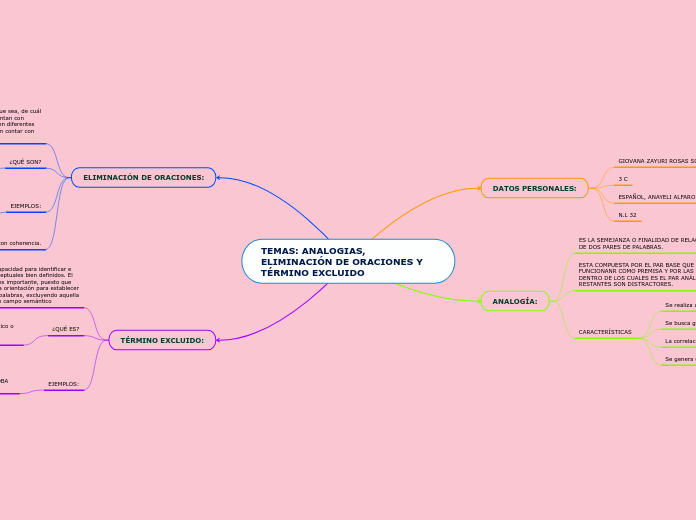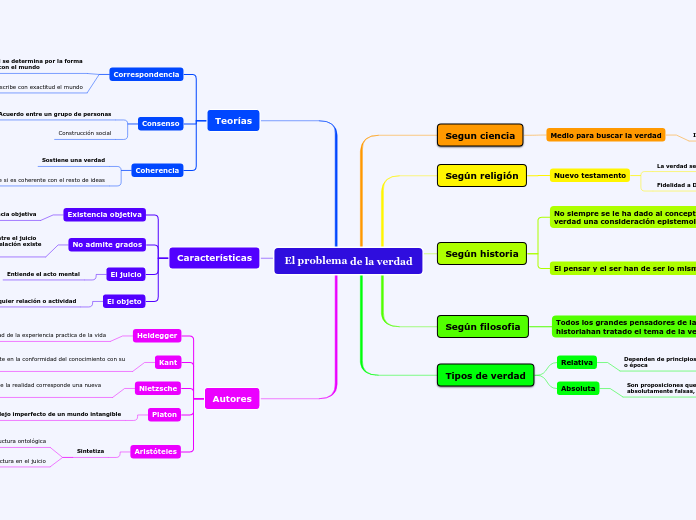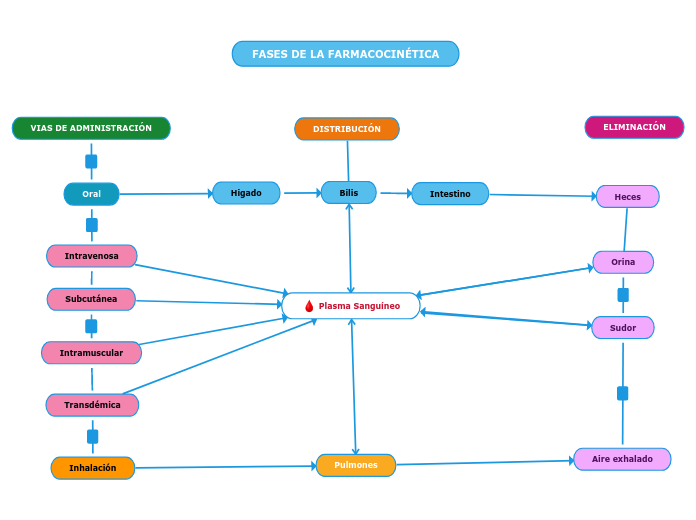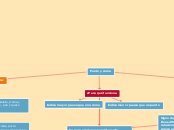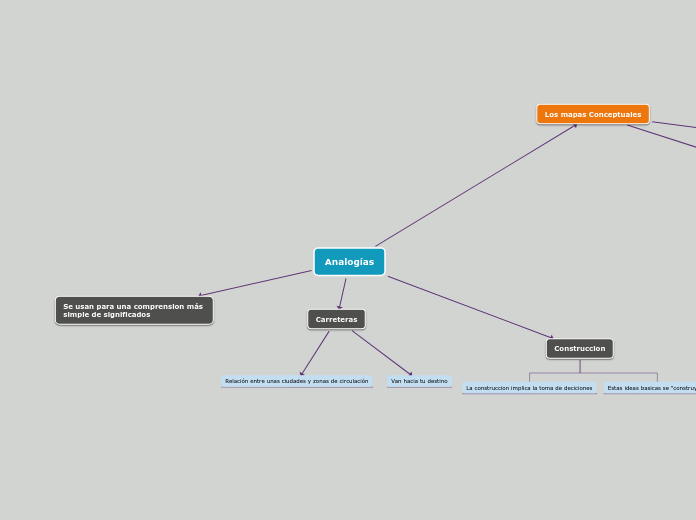TEMAS: ANALOGIAS, ELIMINACIÓN DE ORACIONES Y TÉRMINO EXCLUIDO
A microorganism is an organism so small that people cannot see them with the naked eye.
Microorganisms can be harmful and useful organisms.
TÉRMINO EXCLUIDO:
Harmful microorganisms include fungi, bacteria, protozoa, etc.
They cause several diseases in human beings, animals, and plants, which can even lead to death.
The harmful microorganisms not only can damage the human body, but also the food we eat.
TÁLAMO: A) SÁBANA B) SABANA C) ALMOHADA D) ALCOBA E) CUBÍCULO
RESPUESTAS COLOR ROJO.
COMBUSTIBLE: A) ENERGÍA B) LEÑA C) CARBÓN D) PETRÓLEO E) GASOLINA
EXAMEN: A) FICHA B) BORRADOR C) SOLUCIONARIO D) LÁPIZ E) CUADERNILLO
¿QUÉ ES?
El término excluido viene a ser esa palabra que no es concordante con las características de un campo semántico o grupo de términos. Debido a ese discordancia debe ser excluido.
El término excluido desarrolla la capacidad para identificar e incluso estructurar esquemas conceptuales bien definidos. El estudio de los términos excluidos es importante, puesto que proporciona al estudiante la debida orientación para establecer vínculos de significación entre las palabras, excluyendo aquella que no se ajuste a un determinado campo semántico
Give examples of how harmful organisms can spread.
ELIMINACIÓN DE ORACIONES:
Research about the main characteristics of the microorganisms and give examples!
Todos deben contar con coherencia.
1.- El pez parecía jugar entre las plantas marinas. 2.- Unos delfines chapotean sobre la superficie del mar. 3.- Un destruido submarino en el fondo marino es un simple recuerdo de la Segunda Guerra Mundial. 4.- Un enorme pulpo yace guarecido en la profundidad rocosa del mar. RESPUESTA: Tres de las oraciones hablan de seres vivos, salvo la tercera; por lo tanto, la respuesta es el 3.
¿QUÉ SON?
Llamamos eliminación de oraciones a la habilidad para separar una oración de un grupo, por razones de inclusión o de incoherencia.
Todos los textos, independientemente del tipo que sea, de cuál sea su intención y para que se haya creado, cuentan con características especificas y propias que los hacen diferentes unos de otros; pero indudablemente todos deben contar con coherencia y cierta lógica
ANALOGÍA:
Microorganisms help in the production of many food items, making medicines, keeping the environment clean, in manufacturing, and in research.
CARACTERÍSTICAS
Microorganisms have a role in waste disposal, agriculture, and nutrient recycling.
Give examples of these types.
Se genera un paralelismo de realidades.
La correlación puede ser de dos o más objetos.
Se busca generar una igualdad en características.
Se realiza un punto de referencia en la comparación.
ESTA COMPUESTA POR EL PAR BASE QUE VIENE A FUNCIONANR COMO PREMISA Y POR LAS ALTERNATIVAS, DENTRO DE LOS CUALES ES EL PAR ANÁLOGO Y LOS RESTANTES SON DISTRACTORES.
Give examples of bacteria used in the pharmaceutical industry.
EJEMPLOS:
VÍBORA es a REPTIL, como pulpo es a molusco.
ALEGRÍA es a SONRISA, como tristeza es a llanto.
ES LA SEMEJANZA O FINALIDAD DE RELACIONES EXISTENTES DE DOS PARES DE PALABRAS.
Give examples of Microorganisms in food production.
DATOS PERSONALES:
There are five types of microorganisms. Out of these five, four can be free-living or parasitic.
There is one that can be only parasitic since it always reproduces inside other living things.
After enumerating them, click on the flags below to mark the ones which can be free-living and the ones that cannot.
can be free-living
only parasitic
N.L 32
ESPAÑOL, ANAYELI ALFARO RUIZ
3 C
GIOVANA ZAYURI ROSAS SORIA
